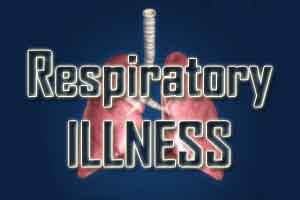- Home
- Editorial
- News
- Practice Guidelines
- Anesthesiology Guidelines
- Cancer Guidelines
- Cardiac Sciences Guidelines
- Critical Care Guidelines
- Dentistry Guidelines
- Dermatology Guidelines
- Diabetes and Endo Guidelines
- Diagnostics Guidelines
- ENT Guidelines
- Featured Practice Guidelines
- Gastroenterology Guidelines
- Geriatrics Guidelines
- Medicine Guidelines
- Nephrology Guidelines
- Neurosciences Guidelines
- Obs and Gynae Guidelines
- Ophthalmology Guidelines
- Orthopaedics Guidelines
- Paediatrics Guidelines
- Psychiatry Guidelines
- Pulmonology Guidelines
- Radiology Guidelines
- Surgery Guidelines
- Urology Guidelines
'Man flu' may be real

The much-debated phenomenon of "man flu" may have some basis in fact, suggests an article published in the Christmas issue of The BMJ.
A Canadian academic investigated the claim of man flu, meaning a cold or similar minor ailment experienced by a man who is thought to be exaggerating the severity of the symptoms.
Despite the universally high incidence and prevalence of viral respiratory illnesses, no scientific review has examined whether the term man flu is appropriate or accurate.
So Dr Kyle Sue, a clinical assistant professor at Memorial University of Newfoundland in Canada, set out to determine whether men really experience worse symptoms than women and whether this could have any evolutionary basis.
Dr Sue analysed relevant research and found some evidence that adult men have a higher risk of hospital admission and have higher rates of influenza-associated deaths compared with women in the same age groups, regardless of underlying disease.
For many acute respiratory diseases, males are also more susceptible to complications and exhibit a higher mortality. And some evidence supports men suffering more from viral respiratory illness than women because they have a less robust immune system.
Despite this evidence, Dr Sue says further higher quality research is needed to clarify other aspects of man flu "because it remains uncertain whether viral quantities, immune response, symptoms, and recovery time can be affected by environmental conditions."
Dr Sue concludes that the concept of man flu, as commonly defined, is potentially unjust. "Men may not be exaggerating symptoms but have weaker immune responses to viral respiratory viruses, leading to greater morbidity and mortality than seen in women," he writes.
However, there may be an evolutionary benefit to a less robust immune system, he explains, as it has allowed men to invest their energy in other biological processes, such as growth, secondary sex characteristics, and reproduction."
There are benefits to energy conservation when ill, adds Sue. "Lying on the couch, not getting out of bed, or receiving assistance with activities of daily living could also be evolutionarily behaviours that protect against predators.
Perhaps now is the time for male-friendly spaces, equipped with enormous televisions and reclining chairs, to be set up where men can recover from the debilitating effects of man flu in safety and comfort."

Disclaimer: This site is primarily intended for healthcare professionals. Any content/information on this website does not replace the advice of medical and/or health professionals and should not be construed as medical/diagnostic advice/endorsement or prescription. Use of this site is subject to our terms of use, privacy policy, advertisement policy. © 2020 Minerva Medical Treatment Pvt Ltd